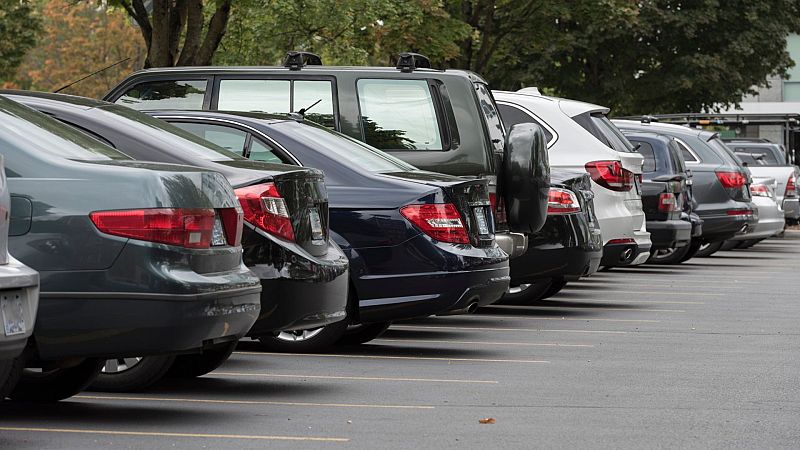EU taxpayers fork out €42bn a year on subsidies for fossil fuel company cars, study finds

Subsidies for petrol and diesel company cars cost EU taxpayers tens of billions each year in the bloc’s five biggest countries alone.
A new study commissioned by sustainable transport think tank Transport & Environment (T&E) looks at four tax benefits traditionally given to company cars: benefit-in-kind, depreciation write-offs, VAT deductions and fuel cards.
It found that across Italy, Germany, Poland, Spain and France, these subsidies cost taxpayers a total of €42 billion a year.
These tax benefits are not available to private car owners and company cars represent around 60 per cent of all new car registrations in Europe. In the first half of 2023, 13.8 per cent of all new private vehicle registrations were battery electric vehicles (BEVs). For company cars, this figure lagged behind at 12.4 per cent.
“Taxpayers are paying billions every year in tax benefits so company car drivers can drive polluting petrol cars,” says Stef Cornelis, director of the electric fleets programme at T&E. “This is bad climate policy and socially unfair.”
Which EU countries have the highest subsidies for fossil fuel company cars?
Italy is the country that subsidises petrol and diesel company cars the most with T&E saying this has cost taxpayers in the country a total of €16 billion a year. Germany is next on the list with an annual total of €13.7 billion followed by €6.4 billion in France and €6.1 billion in Poland.
The biggest subsidies, the think tank says, come in the form of benefit-in-kind schemes that continue to incentivise petrol and diesel vehicles. These are perks or benefits that are given by employers but not included in an employee's salary.
In the UK and Spain, tax advantages for petrol and diesel cars are much lower. The UK has also introduced penalties through high benefit-in-kind rates for fossil fuel-powered vehicles while electric company car drivers pay lower taxes. This has helped increase the uptake of electric company cars to 21.5 per cent - much higher than the 8.6 per cent seen among private car owners.
Spain, in contrast, has minimal incentives for companies to opt for electric vehicles with the uptake of corporate EVs much lower at 3.7 per cent, T&E explains.
Petrol and diesel SUV company car drivers receive some of the highest fossil fuel subsidies, the study says, paying up to €8,900 less per year in taxes than private buyers. Of the €42 billion total, €15 billion goes towards SUVs with companies registering twice as many of these vehicles as private households.
Electrification targets for company cars
“Governments in the UK and Belgium have introduced green tax measures and are phasing out benefits for polluting vehicles,” Cornelis says.
“But governments in Europe’s largest automotive markets are failing to address this absurdity.”
T&E is calling on the new European Commission to introduce binding 2030 electrification targets for large corporate fleets of cars and leasing companies. The think tank believes that by removing subsidies, the trend of electrification in company cars lagging behind private vehicles can be reversed.
“President von der Leyen has reconfirmed her support for the Green Deal and called her Commissioner candidates to phase out fossil fuel subsidies. However, the huge tax benefits that wealthy petrol company car drivers still receive in Europe today conflict with that goal,” Cornelis explains.
“Under her new leadership, the Commission should set electrification targets for large company car fleets, and finally end this tax anomaly.”
Yesterday

